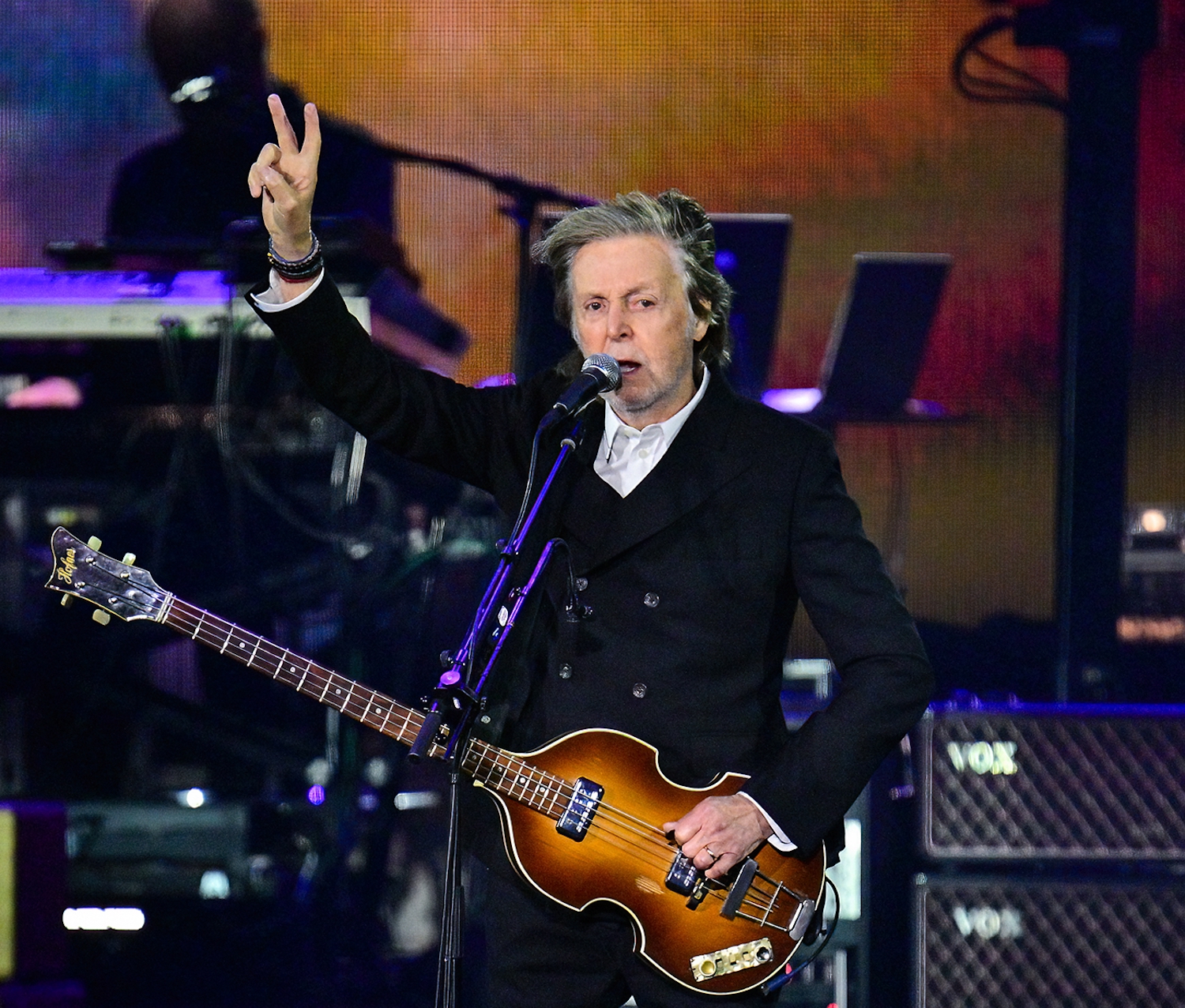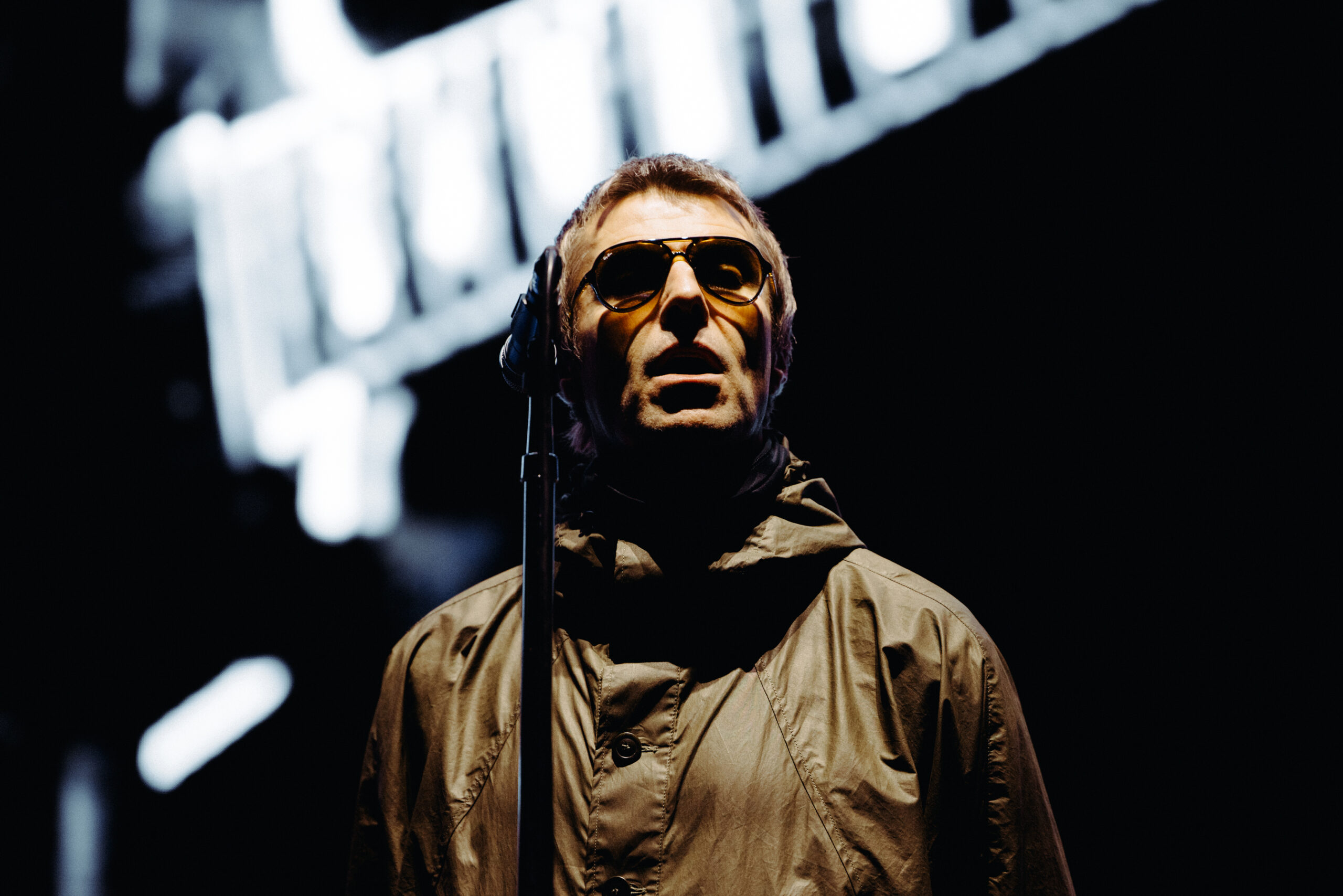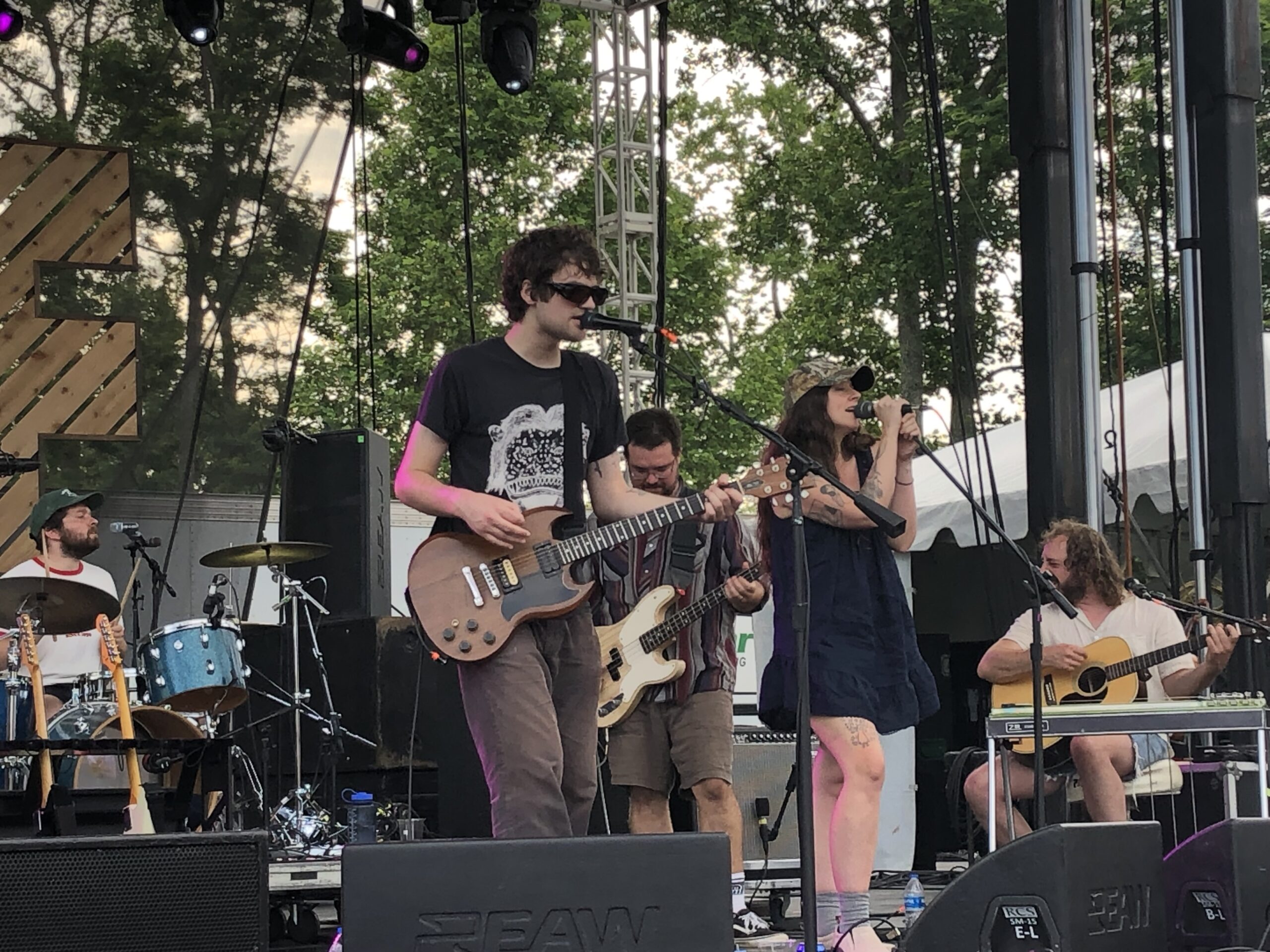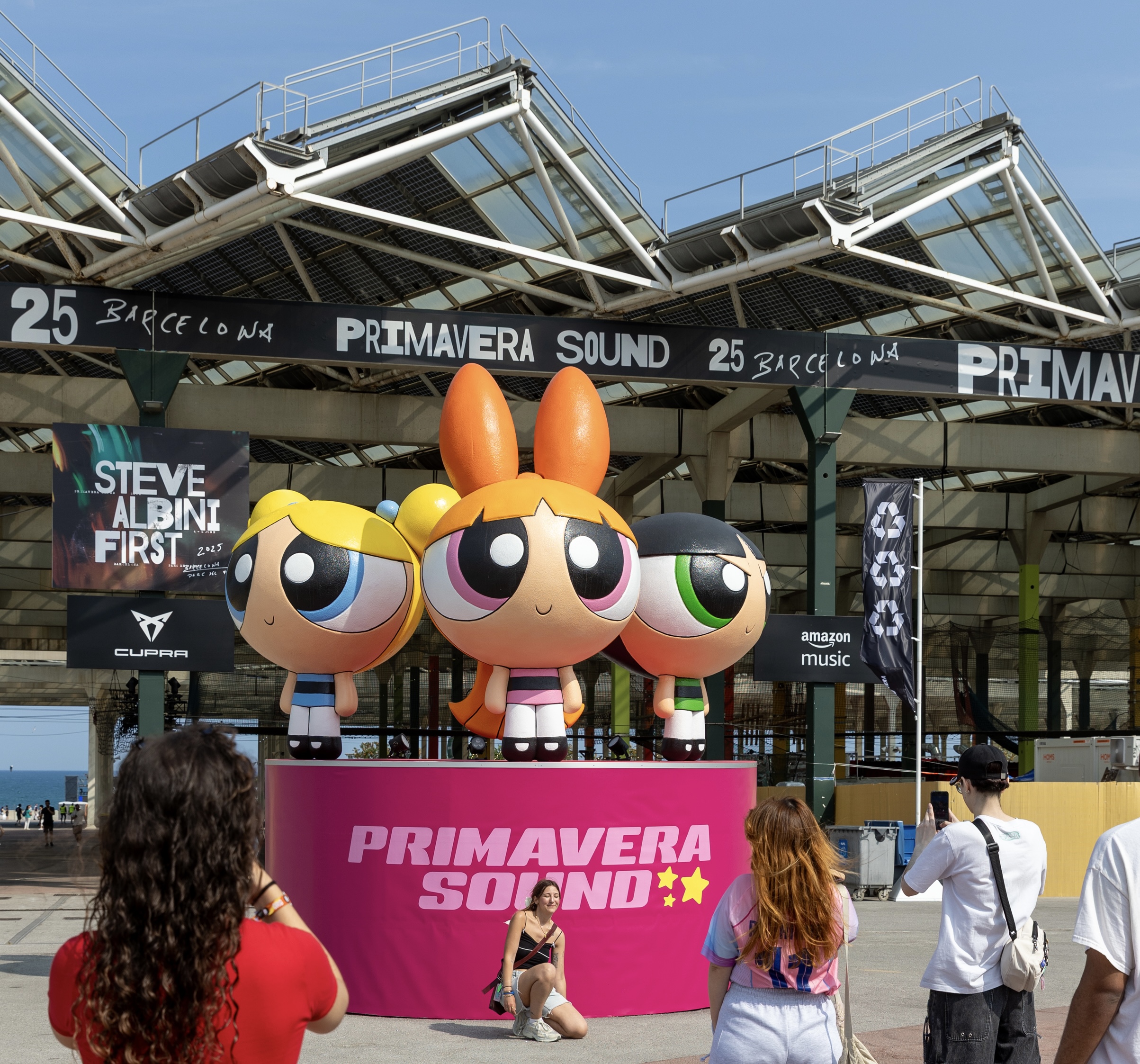It seems there have become two ways of trying to produce a live music spectacle in the age of the coronavirus. The first option is to forego all government restrictions and distancing guidelines (not to mention masks) to play deeply unsafe gigs to thousands of bikers in South Dakota, like Smash Mouth did, or, in Great White’s case, endanger your fans (...again) with a not-even-vaguely-distanced North Dakota show. Things looked even bleaker when events employing a second option -- seemingly firm enforcement of strict social distancing, mask-wearing, temperature checks, the lot -- ended up descending into chaos, too, as the Chainsmokers’ Hamptons concert and DaBaby’s Fourth Of July gig in Atlanta both proved.
Drive-in gigs have appeared to be the safest bet, though the practicalities of getting any official, regulated, vaguely large-scale live event off the ground this summer have looked pretty much impossible. In June, plans were rolled out for a "Live From The Drive-In" concert series across the UK, which would tour the country with the likes of the Streets and Dizzee Rascal to play on airfields and other open, rural spaces. Less than a month after the announcement, though, the gigs were pulled due to concerns over localized lockdowns in the UK, making it “impossible for [organizers] to continue with the series with any confidence." Though no doubt organized with the best will in the world, the idea of actually seeing one of these things happen in 2020 looked almost impossible.
It’s somewhat staggering, then, that I’m even standing here, in the pissing English rain, 10 miles outside the North-East city of Newcastle, trying desperately to find a media entrance that is, it turns out, not even vaguely close to where my Uber decided to leave me. The UK has been experiencing a heatwave this week, with London nearly hitting the hundreds. Trusty Newcastle, though, rolls out its legendary fog and drizzle tonight. It’s like soggy, downtrodden festival season never went away.
I’m here for the opening of the, ahem, Virgin Money Unity Arena, the UK’s first dedicated socially distant concert venue. Held at a racecourse north of Newcastle, the arena looks, at least from a distance, like a pretty standard festival setup, with a smattering of bars, toilets and food stalls in a horseshoe around the sides and back of the field. In the middle are a series of fenced off pens and, as you get further back from the stage, raised platforms, all fitting five people each and complete with top-of-the-range folding plastic chairs. If you’ve got your sympathetic hat on, you could call them “private viewing areas." Less accommodating folk might say you’re halfway to being a farm animal.

Anyway, it’s pretty easy to find your way into your own private cage -- staggered arrival times are given to the 2,500 attendees in advance, and there are no bottleneck queues to get from your car to the arena entrance. Though I slip in at the side for the media entrance, the system is the same across the site. With mask on and hands sanitized, attendees get their ticket scanned and then check in with the UK government’s Track & Trace system. Employed in pubs, bars, and restaurants as they reopen across the country, the system keeps a log of attendees on any given night, so if a customer then receives a positive COVID-19 test, all others who were at the same establishment on that evening will be notified. Basically, everything at tonight’s gig is done firmly by the book.
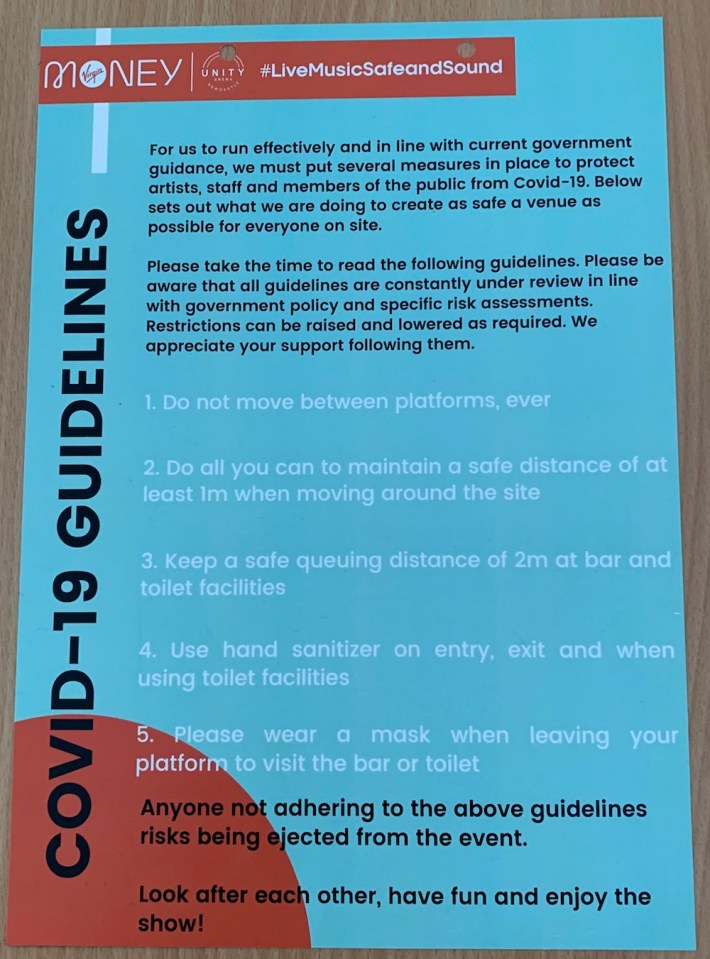
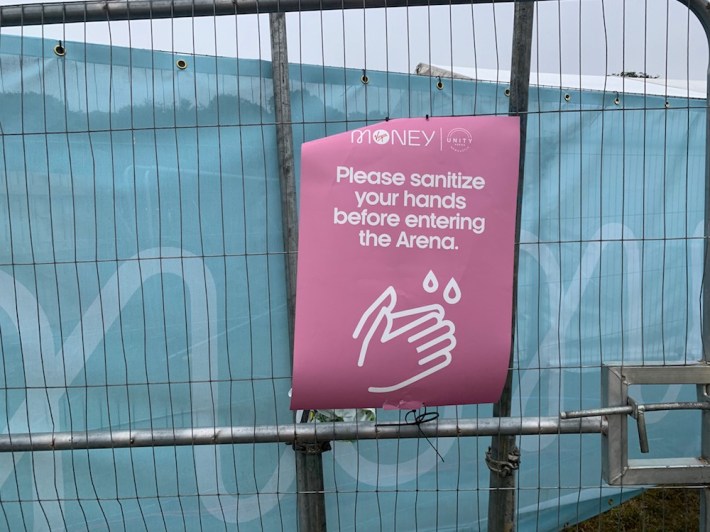
This forthcoming socially distanced gig series is the brainchild of local promoter SSD Concerts, with significant help from Newcastle City Council to bring it to fruition. The series runs for a month and includes gigs from Supergrass, the Libertines, and more; it's said to have been in the planning ever since live music was taken off the table in mid-March, adapting to the latest changes in case rates and government policy in order to make live music return in whatever form possible. With 2,500 tickets sold for a show with a full-scale festival production, and in a field that could hold over 40,000 "regular" gig-goers, you can’t even particularly blame SSD for getting Virgin on board, supplying the cash that will actually make this thing happen. “There’s been a real movement to try and make it work,” a voice in front of me in the queue says proudly. “It’s a really good success story for the region.” The suburban location for the concerts seems sensible, too. Almost everyone arrives and leaves by car, and the logistics of staging something like this in a city right now seem insurmountable.
When you do get to your designated pen with your four friends, moving around the rest of the field feels pretty easy and smooth. Masks can be taken off when inside the pen, but need to be worn while roaming the one-way walkways that go in between the platforms and around the sides of the field. Fans could pre-order drinks ahead of the gig, and are also able to order directly to their pen via an app once in position. There’s also a regular bar, which one person per platform can visit at a time. When I visit to get a beer and then some fries from a food stall next door, it’s quiet and seamless, with masks all round and contactless payment. For stalls used to dealing with over 10 times as many customers, it never feels cramped or busy. Toilets come in the shape of portaloos, of which there are plenty, that are spaced out and never feel overwhelmed. The surrounding areas are drowning in hand sanitizer.
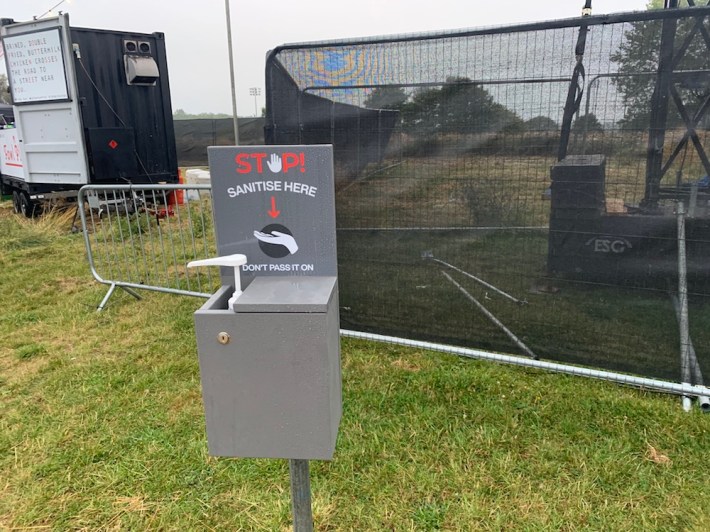
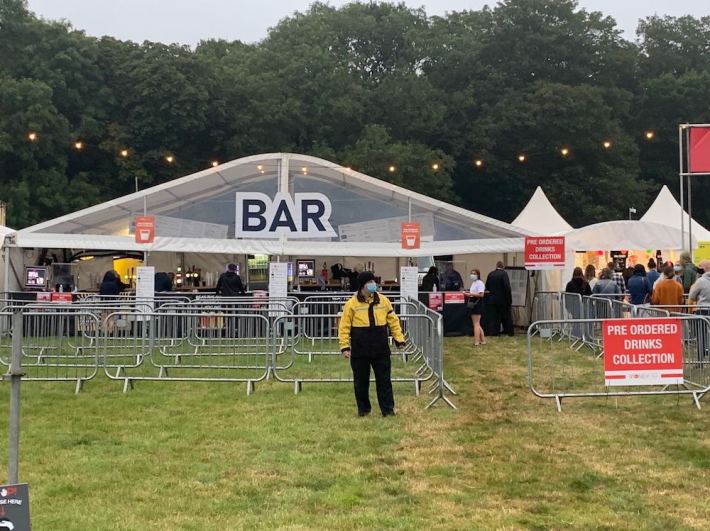
Maybe some of it is due to the heavy security presence, but, for a couple thousand people on their first big night out of the summer, and with beers delivered directly to their platform all evening, the rules -- from where I’m standing at least -- are obeyed impeccably. I think it’s for two reasons. Firstly, there isn’t any particular incentive to break the rules and leave your pen, given that the platforms are evenly spaced out right up to the front barricade, so the moshers couldn’t even really congregate if they wanted to. But most importantly, it feels like it works because the crowd wants it to. There’s a real sense of community evident, dedicated to getting this thing off the ground.
After the arena's opening on August 11th, tonight’s show is still a very new experience for everyone involved, and it could easily fall flat in terms of atmosphere. It’s a good move, then, to sign up local hero Sam Fender to open the arena. As well as being adored in these parts, his unashamedly anthemic, earnest Springsteen pastiche is purpose-built for festival main stages, and does the job perfectly. “We’re making history. Geordies are always making history,” Fender grins, a few songs in. “We’ll get back to doing proper gigs one day, but I’m pretty happy with what we’ve made here.”
The UK’s first socially distanced gig is happening now in Newcastle with @samfendermusic headlining, and where attendees have their own private viewing area with 2m of space between them. Here’s what it looks like #samfender #unityarena pic.twitter.com/YBdxpAjYyi
— Kieron Donoghue (@kierondonoghue) August 11, 2020
Being in a crowd of a few thousand people in a space that would normally hold forty thousand means that a strange disconnect between the size of the stage and the noise of the crowd is inevitable. Fender’s die-hards do their best though. Personally, I find myself indifferent to his music, but when he leads the crowd through a singalong of "Leave Fast" and their voices rise above his, there’s a stunning release all around. I get an involuntary shiver up my spine, the unexpected, visceral return of a noise I didn’t know I missed so much, singing a song I haven’t heard before.
Sure, it’s incredibly easy to raise both eyebrows at the overtly corporate messaging on show here, and the sanitized (in both senses) and somewhat ambiance-sapping seating systems, but I think I underestimated the power of live music on its own. Of course it’s not the real thing, and you probably feel a bit self-conscious in your private little farm, but when the music starts -- pumped out by a very, very good PA system -- and you’ve got five of your mates around you, it gets remarkably close to what we've been missing all this time.

Those who scoff at the idea are more than welcome to stay home and tweet about it -- I must admit, in the run-up to the show, I was somewhat dubious about it all -- while everyone who does decide to take a punt on the new abnormal honestly seems to be having a damn good time. Many even take to social media afterwards to say they prefer the space, unimpeded view, and organization of this kind of live show.
With such (comparatively) small crowds and such big production, gigs like tonight’s aren’t financially tenable forever, and the next challenge will be scaling up the size and capacity so the world’s biggest artists would be able to play events like these. We won’t have to wait forever for standard concerts to return, though, and for the moment, shows like tonight’s feel like a thoroughly safe, enjoyable way to make a live concert happen. And that’s almost certainly the first time we’ve said that since the coronavirus hit.
As I leave to hop in a taxi -- in a system as quick, easy, and spacious as the one in which fans arrived -- any last remaining cynicism feels tough to cling on to. In a completely unprecedented situation like we find ourselves in at the moment, any joy or sense of normalcy that the world can provide -- on whatever scale -- is welcome. The opening of this new socially distanced arena, against significant odds, feels like a victory for the resilience of live music and of music fans, to make something, anything, work within guidelines that make it safe to do so.
I think back to the concert's finale, as Fender closed with another rabble-rousing blast of Killers-style arena-ready bombast and the crowd let out a long overdue exhale. Finally, a small moment of catharsis at the end of the hardest summer they’ve ever seen.

